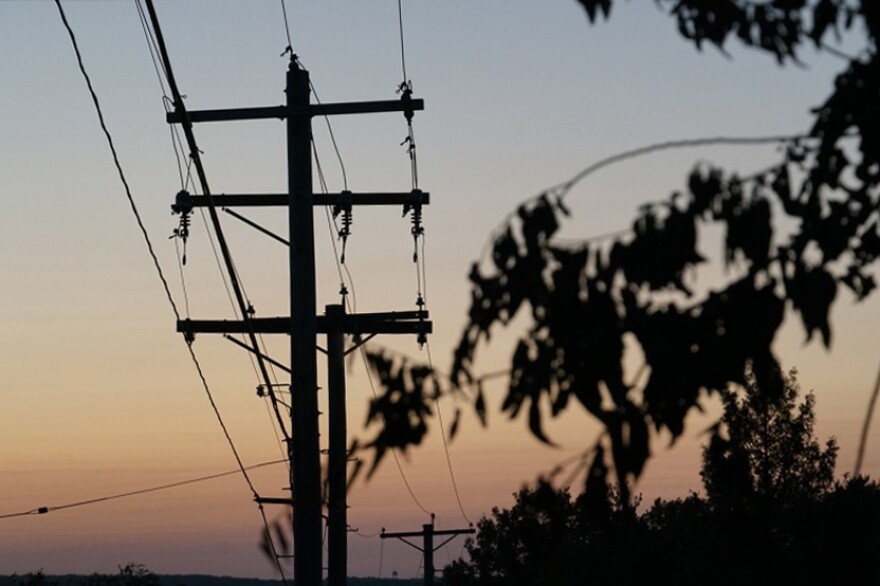More than a dozen people spoke against a proposed electricity rate hike at a public hearing in St. Charles on Wednesday.
Ameren Missouri is asking Missouri utility regulators to approve a 15% increase in rates. The public hearing was one of seven in the case that will be held both in person and online over the next week.
The public commenters universally denounced the proposed rate increase, saying 15% would be unaffordable for them. Many were retirees on fixed incomes. Others spoke about the rising costs of basic necessities such as housing and food that have left even less money for utility bills.
Vicky Huesemann said the utility increase would have a ripple effect, driving up costs for her other bills as grocery stores and other businesses also faced higher energy costs.
“This is a huge deal,” Huesemann said. “It’s not just an increase on my electric bill. It’s an increase on most of my expenses.”
Ameren Missouri’s regulatory vice president, Warren Wood, said during a Q&A portion of the meeting that the rate increase is needed to pay for investments in infrastructure that Ameren has made.
“We’re hardening the grid, replacing old power lines, strengthening poles, upgrading substations, and you’re receiving some energy from new energy resources,” Wood said. “We’re also installing some switches that can automatically detect and restore outages.”
The rate increase would bring in about $446 million. On its website, Ameren says that will cover investments to strengthen the energy grid, replacing aging infrastructure, maintaining diverse energy sources and investing in cleaner energy, including three new solar facilities Ameren recently brought into service.
The hearing was held by the Public Service Commission, the regulating body over Missouri’s investor-owned utilities that will ultimately make a decision in the rate case. The PSC is a board of five appointed by Missouri’s governor.
“Your testimony does matter to us,” said Commissioner Jason Holsman. “None of us have made a decision in this.”
Multiple speakers said they were frustrated with the frequency of Ameren’s rate increases. The company asked for and received a similar increase two years ago, though its initial request was lowered after the PSC’s process.
“I was here in 2023 for an Ameren rate increase that was 15%,” said Mike Lammers. “Now here I am once again less than two years from that date for another Ameren request for a 15% rate increase.”
A handful of public commenters thought changes the Trump administration is making related to energy policy would ultimately bring down costs and should be accounted for as Ameren asks for an increase. The speakers wanted the PSC to pause the rate hearing to see how Trump’s policies in his second term would affect interest rates and energy prices.
“They’re really tone-deaf to ask for a rate increase not only on the heels of a 2023 rate increase but also right now, when we’re on the cusp of policies that are going to bring down inflation by increasing our energy production,” said Matt Epstein. “That’s going to drive down prices. This isn’t guesswork. We saw it in the first administration of President Trump.”
Many also expressed frustration that Ameren is the only electric company servicing the area.
“Please think about the harm that it does when you make these raises in monopoly situations that the people cannot escape,” Liz Callahan said.
There will be multiple other opportunities for customers to provide testimony at hearings this week and next week. The PSC is also collecting comments online and has so far received hundreds.






